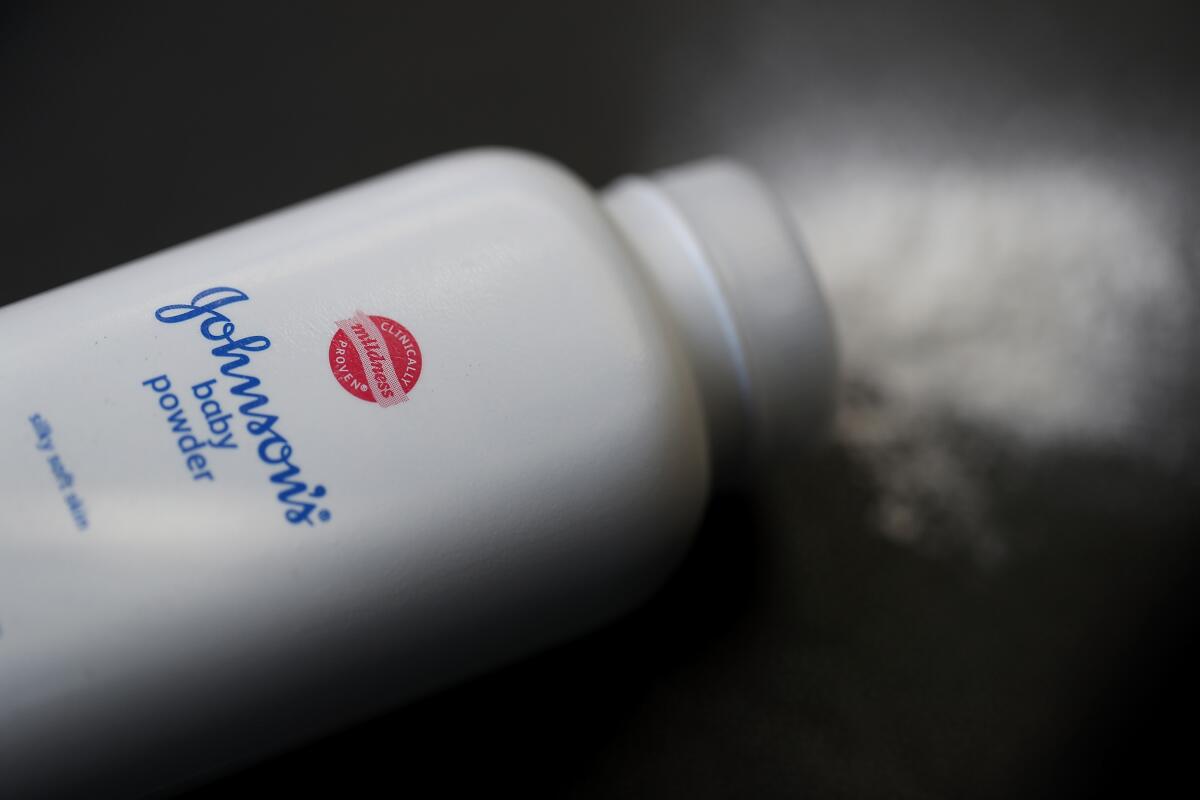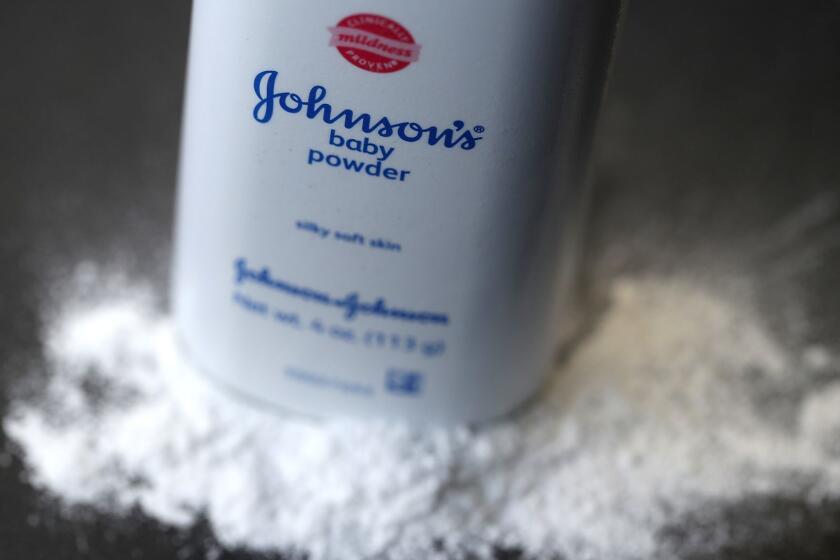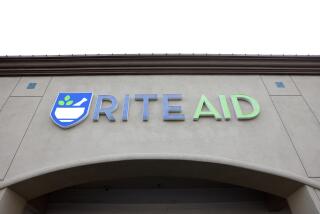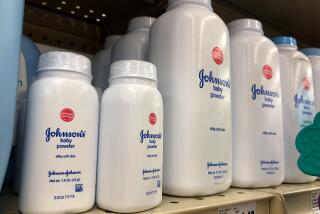J&J to pay $8.9 billion to settle talc litigation cancer claims

- Share via
Johnson & Johnson said it agreed to pay $8.9 billion to resolve all cancer lawsuits tied to its talc-based powders and will make a fresh attempt to contain the liability within a bankruptcy filing by one of its units.
The world’s largest maker of healthcare products hopes to settle more than 40,000 existing suits and fund a trust set up in U.S. Bankruptcy Court in New Jersey to cover future claims, the company said Tuesday in a securities filing. J&J has already withdrawn its talc-based baby powder and others, including Shower to Shower, from the market.
A J&J unit may file a new Chapter 11 case to provide a basis for the trust, which outlines terms for settling the decade-long talc litigation. An earlier filing, which didn’t include a settlement, was rejected in January after an appeals court concluded J&J was wrongly using the bankruptcy process to block juries from hearing lawsuits and handing out damage awards.
If enough talc victims agree to join the settlement as part of the bankruptcy process, it would free J&J from defending itself against claims that baby powder and others tainted by asbestos caused various types of cancer. Juries ruled against the company in nearly a dozen such suits over the years — including one appealed all the way to the U.S. Supreme Court — before J&J was forced to pay $2.5 billion to a group of 20 women whose case went to trial in 2018.
Women and men blamed J&J’s 129-year-old baby powder for causing ovarian cancer and mesothelioma, a cancer specifically tied to asbestos exposure.
For years, J&J has faced lawsuits accusing it of hiding cancer risks tied to its talc-based baby powder. Its cornstarch-based baby powder will stay on the market.
Victims allege internal J&J documents dating from the early 1970s show workers warning managers about traces of asbestos found in talc bottled for baby powder. The victims contend J&J executives should have warned consumers about the powders’ health risks.
J&J argues the talc cases pose a financial threat to the company despite its more than $478-billion market capitalization. That’s because juries could repeatedly hit J&J with multibillion-dollar verdicts that threaten its financial health, its lawyers contend. The company also has suffered reputation harm tied to the talc findings.
J&J has been criticized for using Bankruptcy Court to foster a settlement. A Chapter 11 filing allows companies to put lawsuits on hold while a judge evaluates what they may be worth. Getting court approval for such trusts may require 75% of victims to vote in favor of having their claims handled by that entity.
In its January ruling, the appeals court said J&J wrongly put its newly created unit, LTL Management, under court protection to deal with the talc litigation and put trials on hold. The three-judge panel found that since J&J agreed to set up a more than $61-billion backstop plan for its unit, the company wasn’t in “financial distress” and didn’t qualify for Chapter 11 protection.
J&J officials vowed to appeal the lower court’s ruling on the flawed bankruptcy case to the U.S. Supreme Court.
In the latest case, J&J is likely to replace the backstop agreement with the $8.9-billion settlement in the new bankruptcy filing involving the LTL unit.
More to Read
Inside the business of entertainment
The Wide Shot brings you news, analysis and insights on everything from streaming wars to production — and what it all means for the future.
You may occasionally receive promotional content from the Los Angeles Times.











